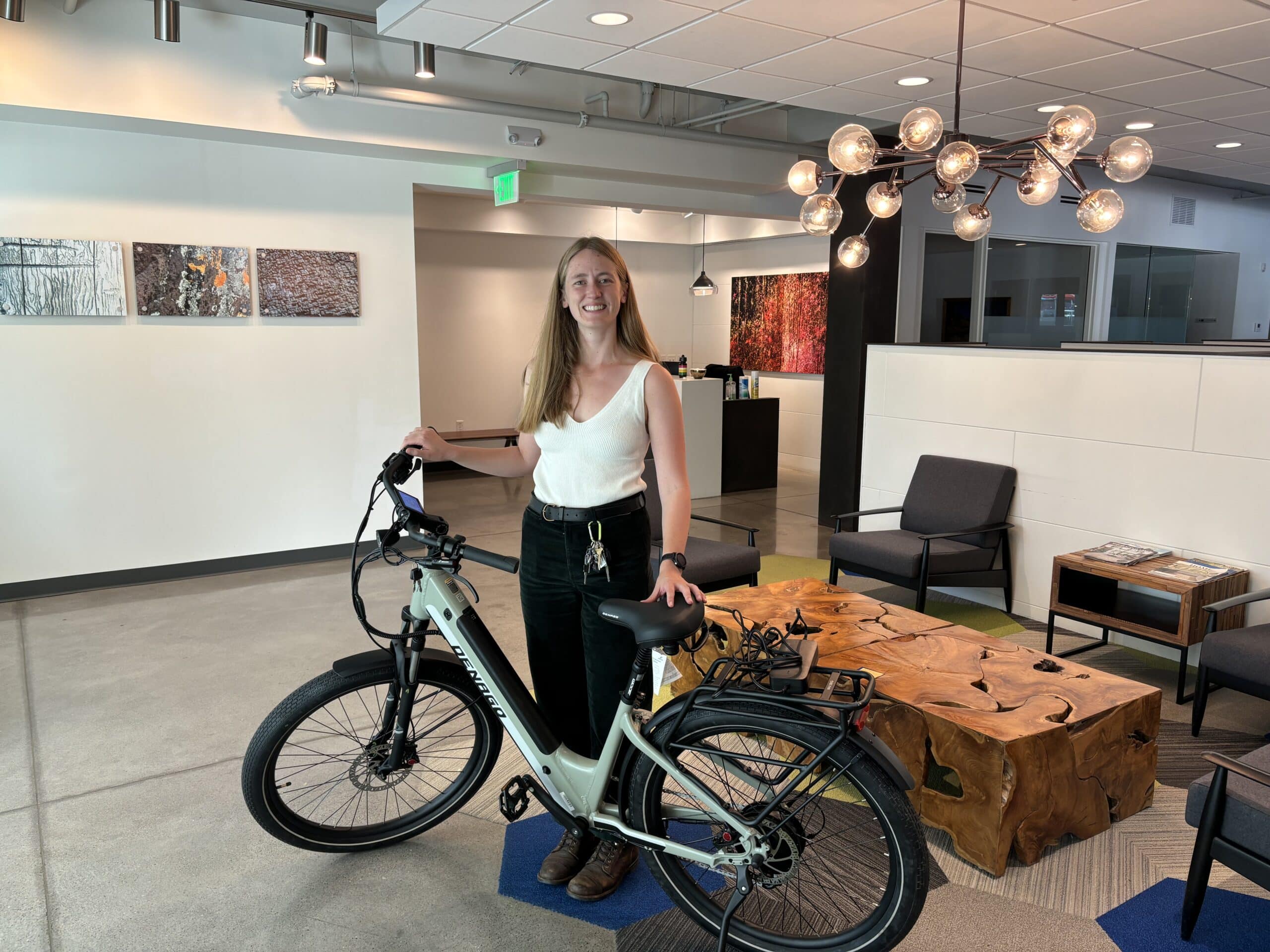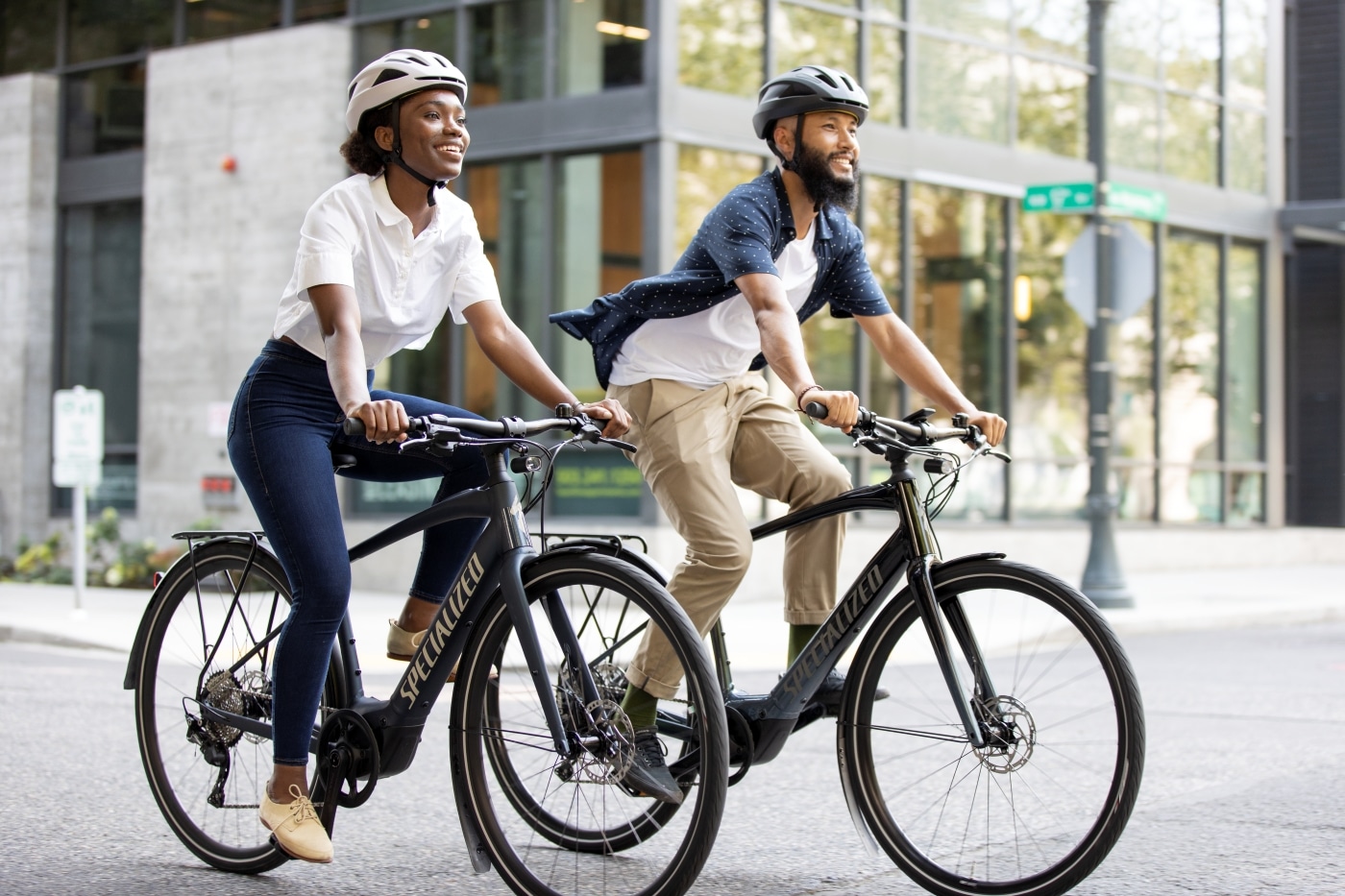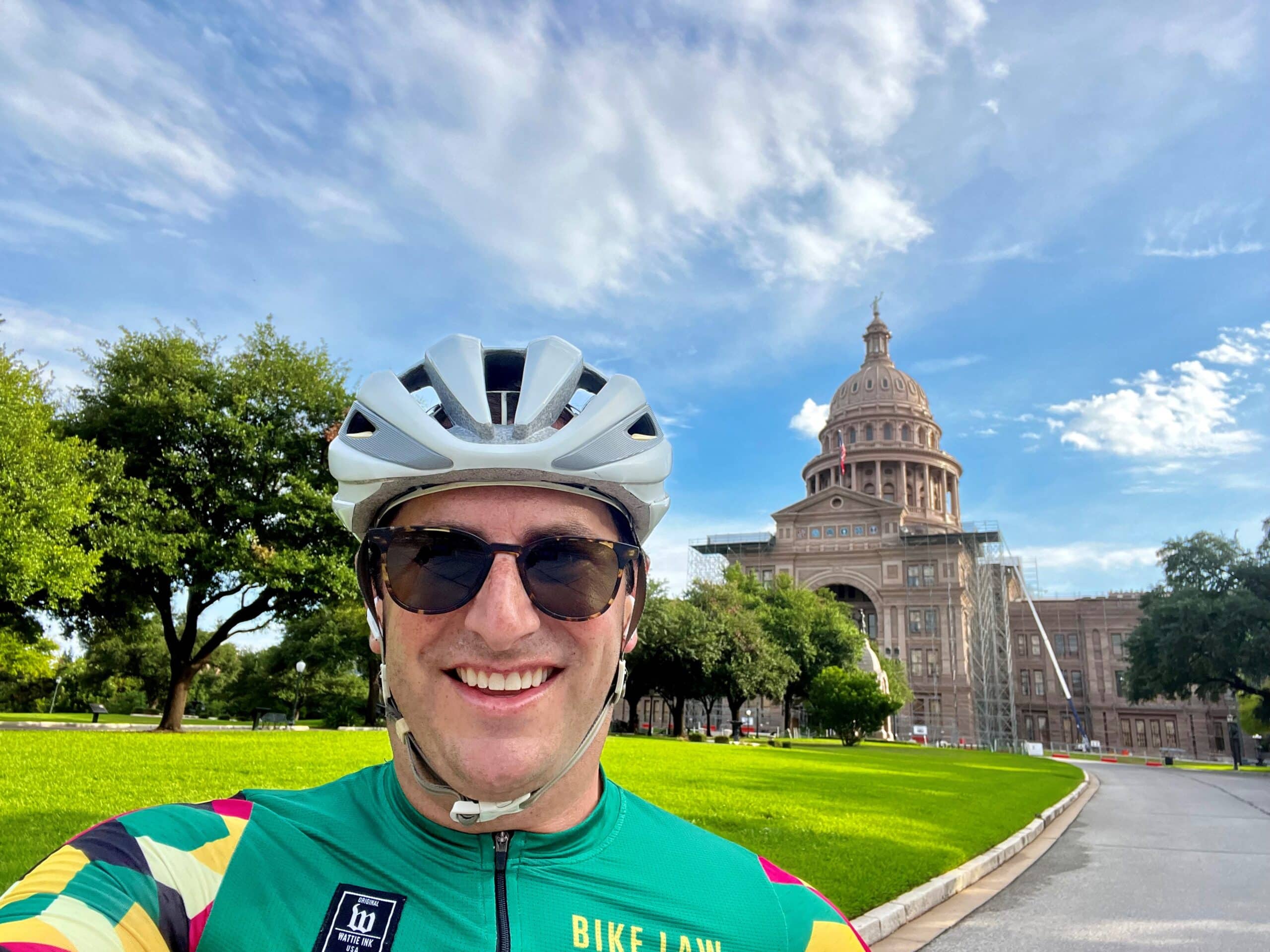North Carolina’s Rules of the Road are not very clear in how they pertain to bicycles. That’s why I wrote the Ride Guide. However, we do have favorable laws that allow bicyclists to use the road in a safe manner – taking the lane when the bicyclist determines it is the safest thing to do and riding two abreast, for example. So when House Bill 232 popped up, many of us took guarded notice.
The Bill was entitled, “An Act to direct the Department of Transportation to study the bicycle safety laws in this State and make recommendations as to how the laws may be revised to better ensure the safety of bicyclists and motorists on the roadways.” In all my years of representing people involved in bicycle/car collision, I have never once seen a motorist injured. So the title itself as a bit concerning.
Yesterday, BikeWalkNC’s Executive Director, Lisa Riegel, board members Steve Goodridge and Ed Harrison, and I went to Raleigh to attend the House of Representatives Transportation Committee hearing on the Bill. Before the hearing I was able to briefly catch Representative Charles Jeter, one of the sponsors of the Bill. Representative Jeter assured me we had nothing to be concerned about, that the purpose of the Bill was to help bicyclists and that bicyclists would be fairly represented on the study commission.
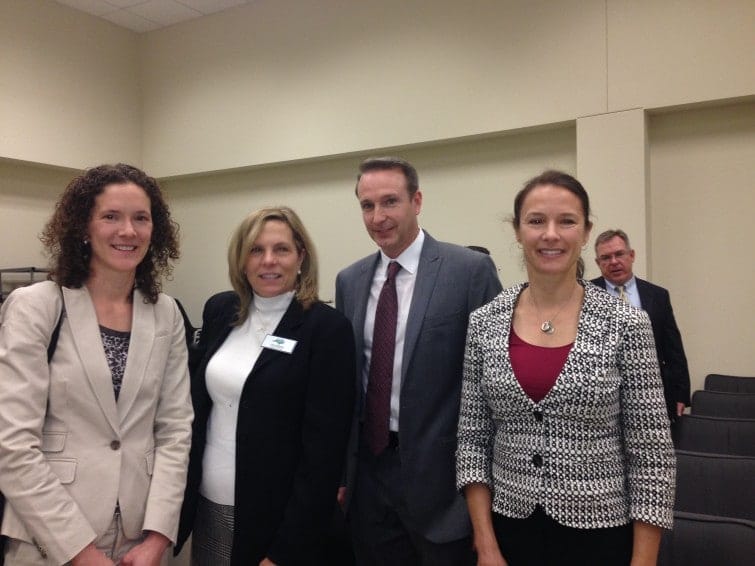
The three Bill sponsors stood up to explain the history of the Bill and their reasons for introducing it.
Transylvania County is very proud of its bicycling credentials and wants to continue to promote and capitalize on bicycling in the area. The sponsors recognize that bicycling is growing, that it is good for the State’s economy and we want to encourage it. However, motorists and bicyclists often don’t know how to interact and people are getting hurt. The Bill sponsors don’t know the best way to fix the problem, which is why they believe a study commission was the way to go.
Representative Jeter said again that he had received expressions of concern from bicycling community about the Bill, and wanted to assure us that concerns were unfounded. The goal is to make bicycling safer and there is “no intent at all to scuttle or harm cycling in North Carolina.”
The committee members expressed interest in the Bill and asked a number of questions. One was whether the issue of hit and run punishments was something that could be part of the study. The sponsors agreed that it could and an amendment was made and accepted. Representative Torbett questioned whether we were enforcing already existing laws and it was agreed that this was something the commission could address. Regarding the Bill’s provision that bicyclists carry ID, Representative Cleveland questioned whether that was constitutional. The sponsors responded that they did not know but the concern was for bicyclists who are injured and alone and found without information available to identify them.
The Bill calls for the study commission to contain 8 specific categories of individuals, a 9th open category, to be determined by the Department of Transportation. The commission may then select additional members of their choosing, for a total of up to twelve members. We had hoped that the Bill would be amended to include a specific category for someone with expertise in bicycle safety. Representative Becky Carney expressed her concern on this. While the Bill was not amended, we were assured that at least one such person would be a part of the commission and would fit in under one or more of the existing categories.
The only (very) discouraging comment came from Representative Yarborough from Granville and Person Counties, who said he was “concerned with the message we’re sending to DOT.” He mentioned that DOT’s budget had been cut, but “we’re going to tell them we care about bikes?” Jeter responded, “People are losing their lives. This is important,” and pointed out that DOT already has a Bicycle/Pedestrian Division that can manage the study.
After the discussion, the Chair allowed one comment from the audience. Steve Goodridge spoke about the need for a bicycle safety expert to be part of the study commission. The text of his remarks, and BikeWalkNC’s summary of the hearing, are available here.
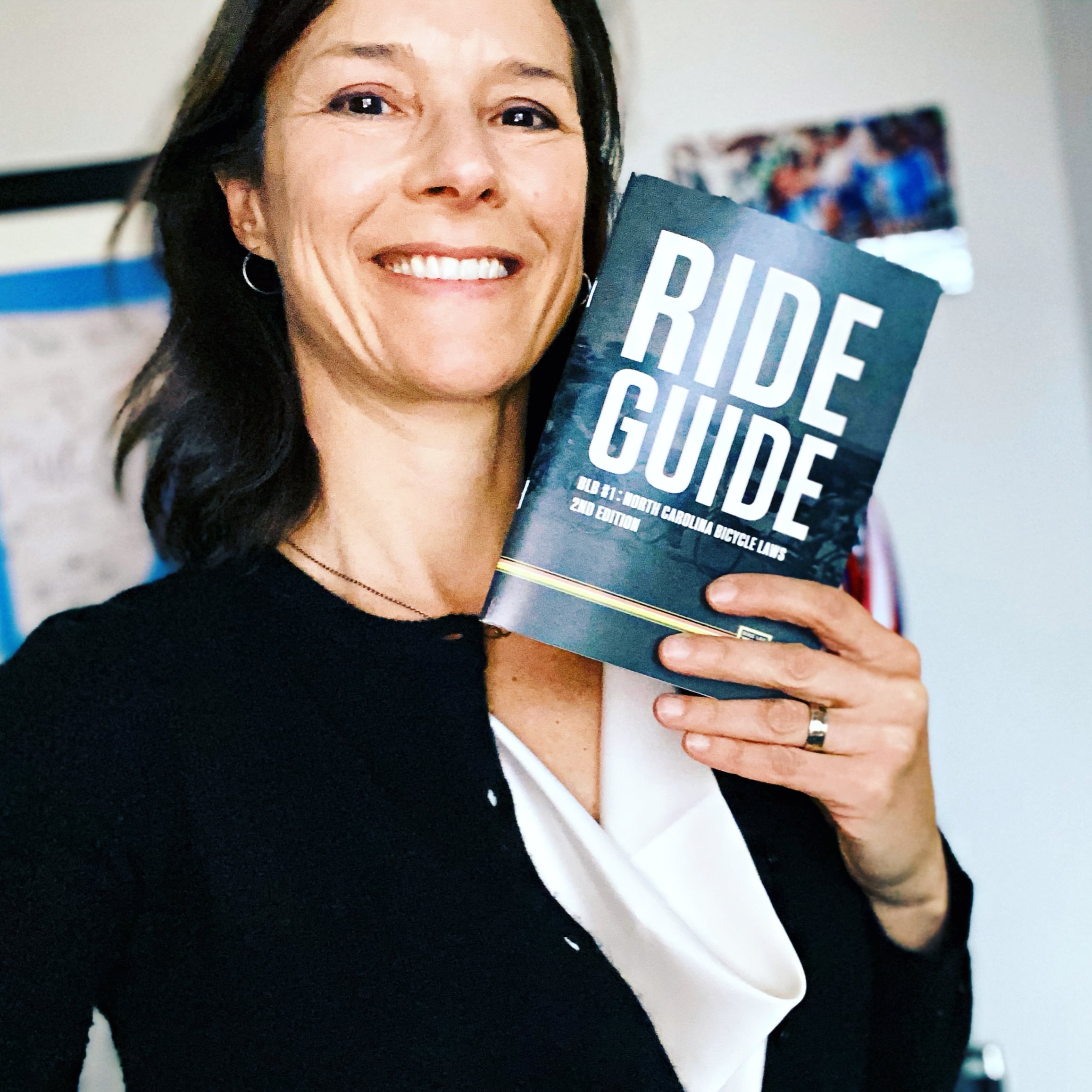
North Carolina lawyer and Bike Law founder, Ann Groninger, has advocated at the state level on behalf of bicyclists in North Carolina for over 15 years. Ann has offices in Charlotte and Durham and has helped bike accident clients in Asheville, Raleigh, Durham, Greenville, Wilmington, Fayetteville, and throughout the state. Read more about Ann on her bio page.
